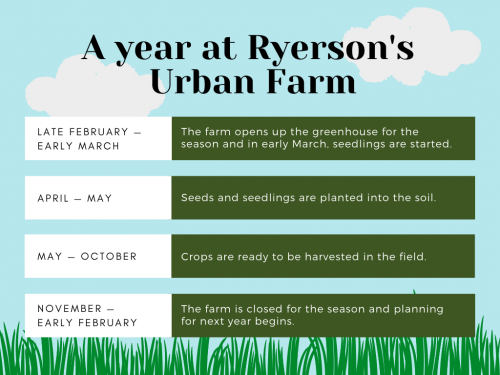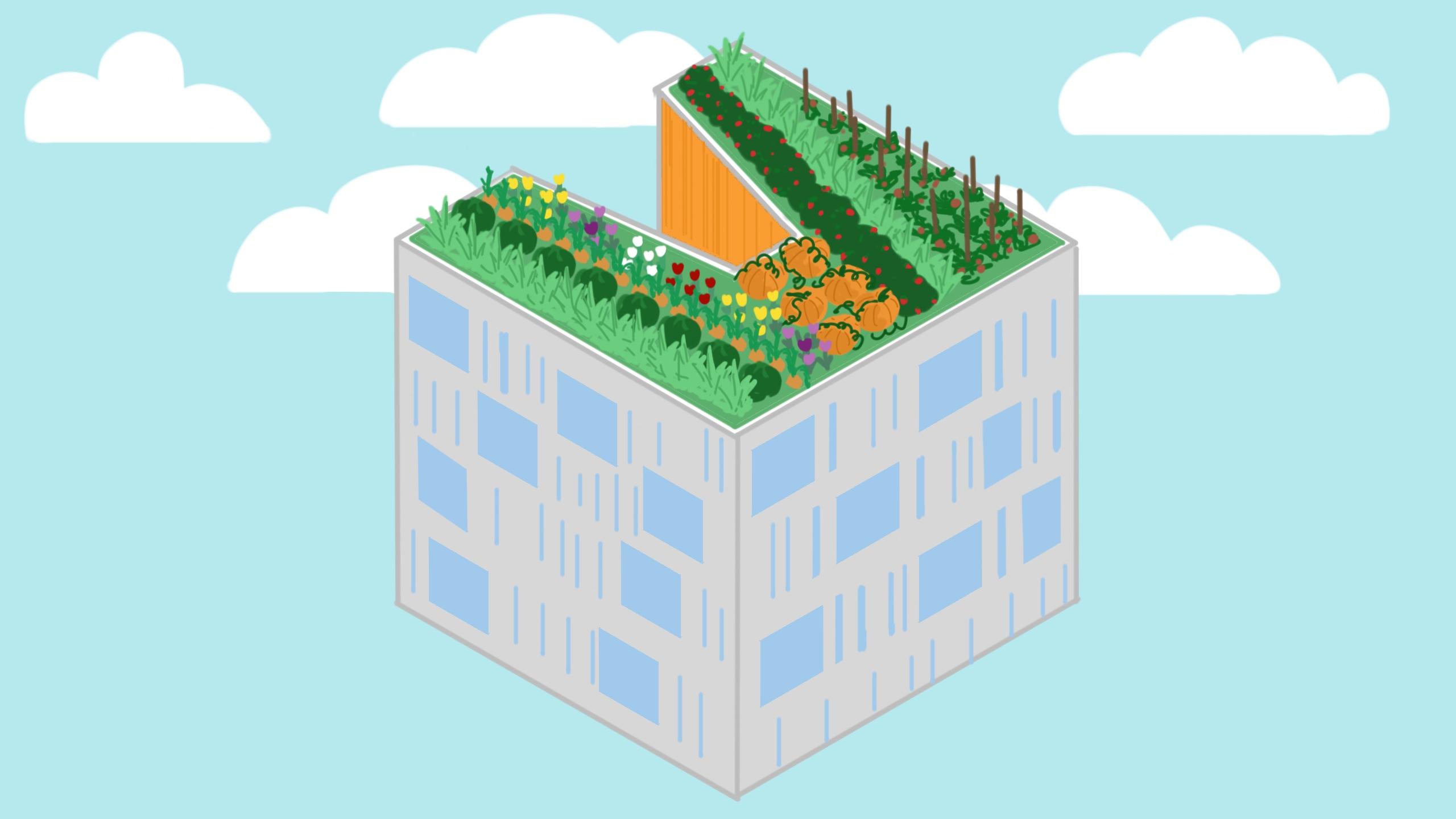By Jack Wise
Staff at Ryerson’s Urban Farm say they are looking forward to introducing more Black and Indigenous food initiatives this growing season, as the Ontario government permitted farms to reopen in January.
Sam Howden is Métis from Treaty 1 territory, also known as Winnipeg, and the first Indigenous field assistant at the Urban Farm since the position was established in September 2020. Howden said they will be working on an 868 sq. feet plot of growing space on the farm, which is dedicated to Indigenous foodways.
“Foodways relate to cultural ways of growing, practicing and consuming food and medicines,” according to Howden.
The crops that they’re working with are corn, beans and squash—traditionally known in Indigenous agriculture as the “Three Sisters”—along with traditional medicines. Howden said one of the medicines they are focusing on is nervines which help calm the nervous system, something that could be helpful to those feeling a lot of stress during the pandemic. Nervines can be brewed like tea to experience its calming effects.
“We are following planting, moon phases, planting traditional medicines of the Anishinaabe,” Howden said, citing that the Urban Farm at large is on Anishinaabe, Haudenosaunee and Mississaugas of the Credit territory. “We want to be representative and respectful of [the culture] in this area, even if it’s on a roof.”
According to Ryerson’s website, the Urban Farm opened in 2014 on the Andrew and Valerie Pringle Environmental Green Roof, located atop the George Vari Engineering and Computing Centre. In an average year, around 8,000 to 10,000 pounds of produce are grown every season, the website reads.
According to engagement coordinator Cindy Pham, tending to the farm is a year-round project but growing seasons are in the spring, summer and early fall.

Last year, the Urban Farm staff had to reduce their on-site operations because of the pandemic, however Pham said they still had a successful season last summer.
“As the season progressed, we decided to operate by growing low input, but high energy [and] nutrient dense crops so that the farm team could limit the amount of time spent on-site,” said Pham.
She also said that the Urban Farm donated all of its food to its volunteers and staff as well as communities around Ryerson, such as Building Roots in Moss Park and to the Ryerson Pow Wow.
“We want to be representative and respectful of [the culture] in this area, even if it’s on a roof”
Mir Asoh, the Black Food Sovereignty student engagement assistant, said they’re working on delivering cultural workshops to engage with Black community members about food sovereignty alongside the Urban Farm. They’re working with Nicole Austin, the Black Food Sovereignty engagement coordinator and project lead for the “Harvest Collective.”
Through their project, Asoh said it will engage in restorative initiatives and community building activities.
Asoh also said they’re organizing workshops that will teach the growing of cultural plants, such as callaloo, African eggplant and okra. Asoh and Austin held an event on Feb. 26 with Ryerson’s Centre for Studies in Food Security and Afri-Can FoodBasket about how Black Food Sovereignty and Black resiliency can transform food systems.
Working together with Indigenous initiatives on the farm, Asoh said they’re hopeful for what the growing season will bring. “Having Black and Indigenous people working together, we have a long history of that,” they said. “Seeing that happen on Ryerson campus in real time is beautiful.”
Even though there are some health concerns given the circumstances of the pandemic, Asoh said they’re excited for the work that’s going to be done.
“I love plants, I love gardening; it feels really ancestral,” they said. “I am looking forward to get on the farm and be with the soil, be with the plants.”
Howden said being allowed to work outdoors during the pandemic allows them to be “nourished” by the farm with their co-workers. With their unique work environment, they hope that they can continue to grow the community and their volunteer base at the farm.
“Even though we’re wearing masks and we’re social distancing, it’s a really wonderful opportunity,” Howden said.












Leave a Reply